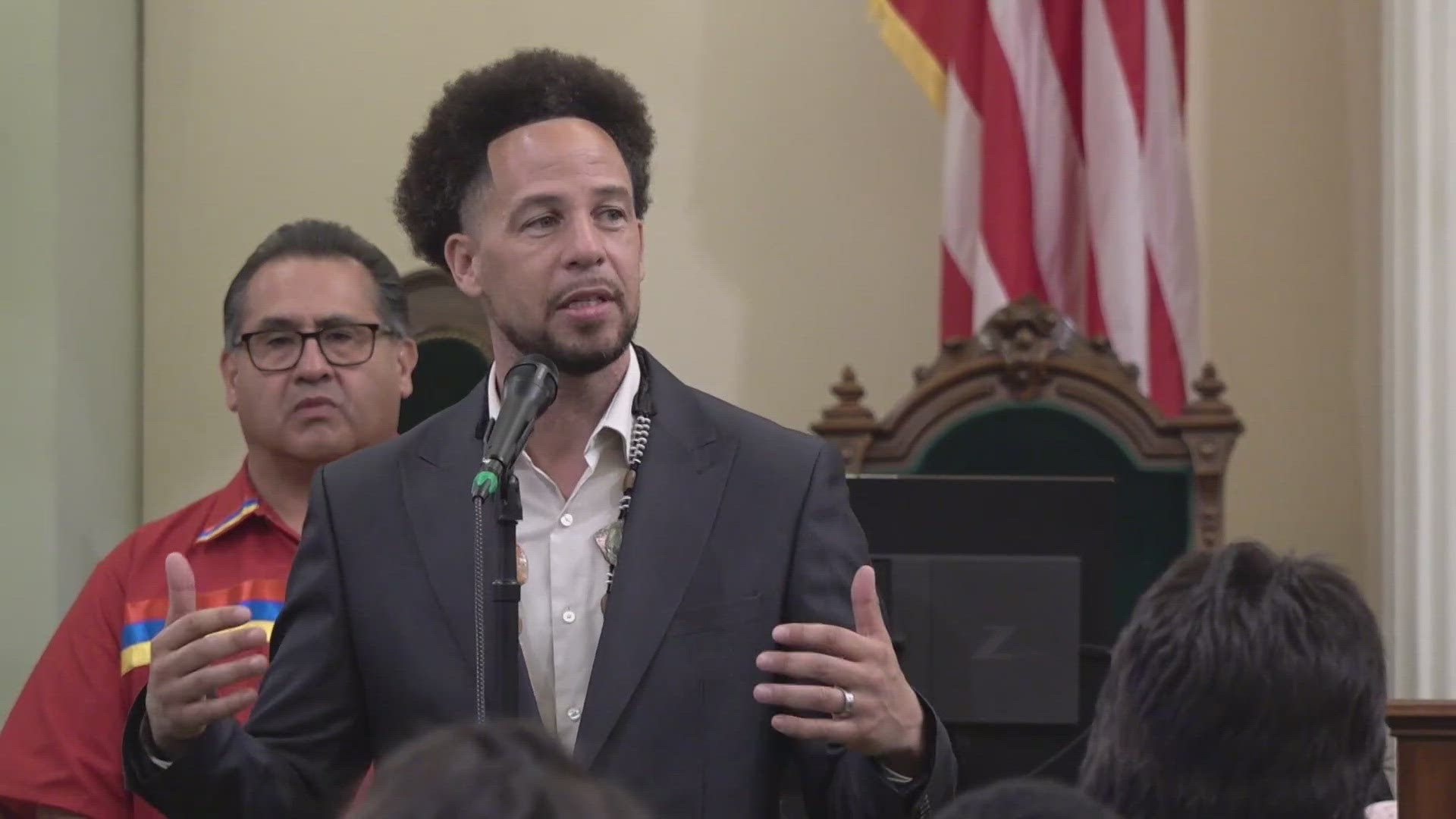SACRAMENTO, Calif. — In a historic move Friday, Sacramento State announced its new Native American College, a first of its kind in the California State university system.
The college, a co-curricular institution housed at Sacramento State, will support Native-based education with a focus on leadership and career building. It will offer a diverse range of programs that integrate "tribal values, traditions and community engagement," according to a press release.
This marks Sacramento State's second ethnic-based institution. The university launched the the nation's first Black Honors college earlier this year.
The announcement was made at the California State Capitol by President Luke Wood and Dr. Annette Reed, an enrolled member and citizen of the Tolowa Dee-ni' Nation, who will be the first dean of the Native American College.
Reed said students will have access to faculty mentors, advisors, outreach coordinators and more who have the expertise to work closely with Native American students and can support them holistically.
She hopes this historic initiative will address low enrollment of Native students pursuing higher education across the state and in the country. Native American students face significant barriers to enrolling in higher education, such as financial constraints, feelings of isolation, historical trauma and lack of culturally relevant curriculum.
"And so I'm hoping this impacts the students where they go through as a cohort. They can create networks, they can be able to have more of a support system going through and beginning together and hopefully graduating at the end together," Reed said.
Reed recalled taking her first class on Native American studies in 1980. She would later on serve as the director of Native American studies at Sacramento State and chair of the Department of Ethnic Studies. For her, advocating for Native American education was a natural top priority.
"People always ask me, 'What is Native American studies?' It is history. It is looking at culture. It's looking at teaching sovereignty, federal Indian law. It's teaching social work, art. It's teaching about Native cultural expression, it can be literature," Reed said.
The Native American College will introduce two new courses, according to Reed, which will be focused on Native American leadership.
"It means that maybe some of the ones that start in Fall 2025 will end up here at the Capitol. Maybe they'll end up being the future senators or assembly people or the future of people in business. They might be leading our nation as tribal chairs, they might be going into the medical field," Reed said. "But whatever field they go into, leadership is really key."
Students who want to be in the Native American College can apply after being accepted into the university's general application process. All students will be required to minor in Native American Studies, with an emphasis on Native American leadership.
California Indian Cultural Education Day
The historic announcement was followed by a California Indian Cultural Education Day event at the Capitol. The Native American Legislative Caucus invited 150 third and fourth grade Native and non-Native students to learn about traditional music, languages, crafts and more from different tribes.
In one room, Phil Albers, who is a Karuk tribal member and education director of Save California Salmon, spoke with a group of students about the cultural importance of salmon for California tribes as they decorated their own salmon-shaped posters.
"I really hope they can understand or at least have an opportunity to recognize that even if it's maybe not directly tied to their own cultural beliefs or practices, that they can learn and appreciate that it is very strongly connected with other people that are here," Albers said.
The education program was replicated from a successful project founded and organized by Assemblymember Ramos in 1999 to teach California Native American culture to elementary students in San Bernardino. More than 5,000 students have participated in the annual gathering. By bringing it to Sacramento, he hopes to bring along the crucial educational component.
"If we can, if we could educate our third and fourth graders, the students in the state of California, about factual songs, factual history, factual resiliency of California's First People as they move forward in the educational system and learn about the history of the state of California, maybe their hand goes up in the classroom that says, 'Well, what happened to California Indian people?'" he said.
Watch more Race and Culture stories: Artists use visual storytelling to honor Filipino identity, history and culture through new exhibit

